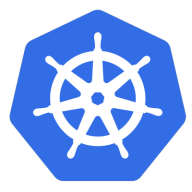

Kubernetes and Komodor operate in the realm of container management and troubleshooting. Komodor seems to hold an advantage due to its strong troubleshooting capabilities, despite Kubernetes being more cost-effective.
Features: Kubernetes offers scalability, flexibility, and a strong community support system. It excels in managing complex containerized applications, providing robust orchestration. Komodor, on the other hand, shines with its real-time monitoring, root cause analysis, and the ability to swiftly identify and resolve issues.
Room for Improvement: Kubernetes could improve in deployment simplicity, personalized support, and maintenance requirements. It involves a steep learning curve that requires skilled personnel. Komodor might enhance its pricing model, broaden feature scope beyond troubleshooting, and expand integration capabilities with other platforms or services.
Ease of Deployment and Customer Service: Kubernetes demands advanced expertise for deployment and maintenance and often involves resource-intensive management. Community-driven support is vast but lacks personalized assistance. Komodor simplifies deployment with a user-friendly setup and offers responsive customer service, facilitating faster resolution times and making it more user-friendly for streamlined operations.
Pricing and ROI: Kubernetes benefits from being open-source, leading to lower direct costs but may incur hidden expenses related to support. Komodor carries additional costs for its tools yet provides significant ROI by reducing downtime and simplifying troubleshooting tasks. This efficiency and time-saving lead to greater ROI, making Komodor a worthwhile investment for managing Kubernetes environments effectively.
We saw around ninety percent ROI using Komodor.
What earlier required manual coordination and took thirty to forty minutes per release is now usually completed within ten to fifteen minutes.
We receive revenue and returns from its deployment due to improved services and applications.
I have seen a return on investment, and the metrics in return for the investment are very fast.
I would rate the customer support from Komodor a ten out of ten.
In addition to official support, Kubernetes community ecosystem is very strong.
The application is stable, and I seldom require support.
Komodor is very highly scalable in terms of infrastructure and in terms of the number of nodes we use.
Overall, Kubernetes gives a lot of flexibility to handle growth and spikes without re-architecting the system.
Kubernetes is highly scalable, earning a rating of eight out of ten.
By using horizontal pod autoscalers, Kubernetes automatically adjusts the number of pods based on CPU, memory usage, or other metrics.
As long as best practices are followed, such as proper resource limits, health checks, and monitoring, Kubernetes provides a stable foundation for production workloads.
Our organization performs robust testing before sending changes to production, ensuring the stability of Kubernetes in live environments.
Kubernetes offers high stability, allowing for easy scaling of ports and containers.
There are some features related to the platform that are missing in Komodor, such as Tigera status or CNI pods.
Kubernetes is a very mature and reliable platform, and the benefits clearly outweigh the limitations for most production use cases.
Improved documentation would help in gaining scalable knowledge and making it more understandable.
After the upgrade, some pods were not up as expected, leading to downtime.
Compared with Rancher or any other tools, Komodor is priced cheaply and available at a fair price.
Kubernetes itself is open source and free, so there is no licensing cost for the software.
Since we use Kubernetes on-premises, the costs are related to our expertise and the personnel we hire.
the setup costs are high.
One of the best features that Komodor offers is Cloud AI, which debugs all the logs and gives the exact root cause for the issue.
Kubernetes also offers rollback control and auto-scaling capabilities, which are crucial for maintaining an application's availability even if nodes or pods go down.
The feature that stands out most for me is self-healing. If a pod crashes or a node fails, Kubernetes automatically recreates the pod and maintains the desired state.
For us, having fast storage classes is very important.
| Product | Market Share (%) |
|---|---|
| Kubernetes | 6.9% |
| Komodor | 3.2% |
| Other | 89.9% |
| Company Size | Count |
|---|---|
| Small Business | 1 |
| Midsize Enterprise | 4 |
| Large Enterprise | 2 |
| Company Size | Count |
|---|---|
| Small Business | 26 |
| Midsize Enterprise | 10 |
| Large Enterprise | 47 |
Komodor is the missing piece in your DevOps toolchain - offering one unified platform from which you can gain a deep understanding of all of your system events and changes. We integrate with all of your tools, monitor changes and alerts and organize information on a clear digestible dashboard and provide you with the right context at the right time.
Kubernetes (K8s) is an open-source system for automating deployment, scaling, and management of containerized applications.
It groups containers that make up an application into logical units for easy management and discovery. Kubernetes builds upon 15 years of experience of running production workloads at Google, combined with best-of-breed ideas and practices from the community.
We monitor all Container Management reviews to prevent fraudulent reviews and keep review quality high. We do not post reviews by company employees or direct competitors. We validate each review for authenticity via cross-reference with LinkedIn, and personal follow-up with the reviewer when necessary.